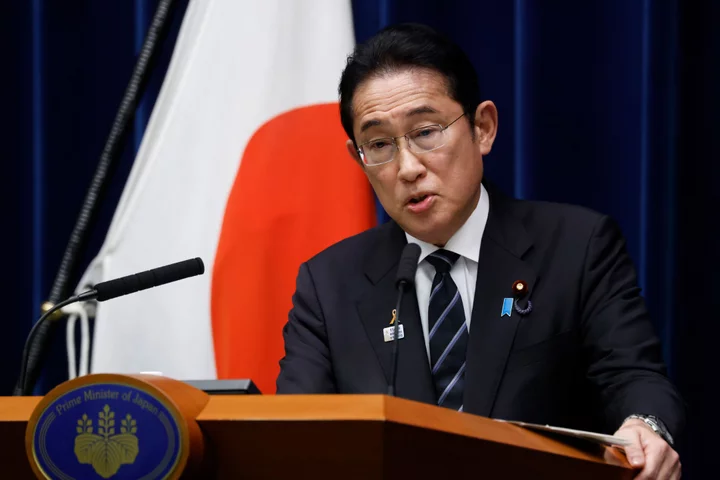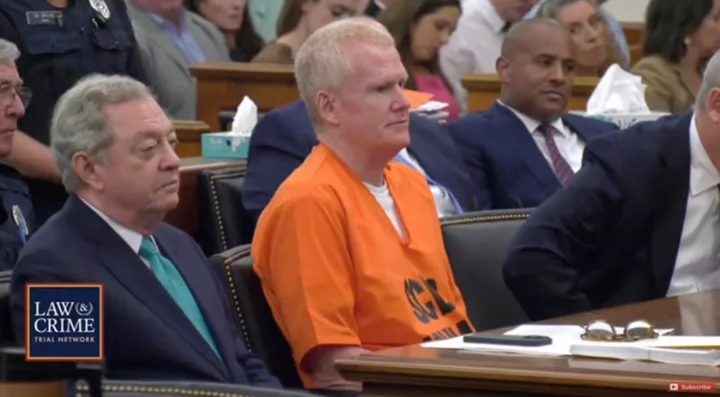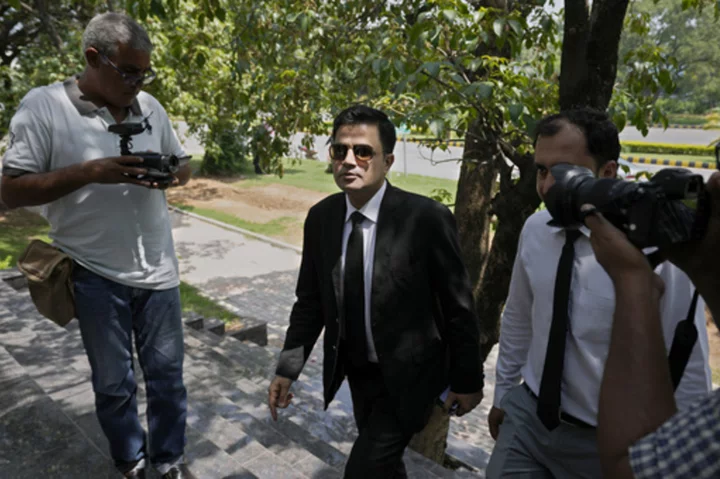Prime Minister Fumio Kishida called on North Korea to halt its plans to launch a satellite after Japan received a notice on fields where debris from a rocket may fall at sea.
Kishida told reporters Tuesday that a launch would be in violation of UN Security Council resolutions, and his government would work with the US and South Korea to deal with the matter.
Japan’s Coast Guard received a notice from a country it didn’t identify that warned of a possible rocket launch from Wednesday to Dec. 1 that gave three areas where debris may fall. Two were west of the Korean Peninsula and another was east of the Philippine island of Luzon.
The fields coincide with paths of the two rockets North Korea launched earlier this year in failed attempts to put a spy satellite into orbit. South Korea warned Pyongyang on Monday to halt the third launch.
Pyongyang has ignored the previous warnings, saying it is entitled to a civilian space program under international law. Leader Kim Jong Un has said a satellite deployment is one of his country’s top priorities and sought help from Russia for his space program.
Read: Kim’s Trip to Russia May Help Him Put Spy Satellites in Orbit
While officials in Seoul have said they believe a North Korean spy satellite would be rudimentary at best, it could help Pyongyang refine its target lists as it rolls out new missiles designed to deliver nuclear strikes in South Korea and Japan. Those nations host the bulk of the US’s military personnel in the region.
South Korea plans to send up its first home-grown spy satellite on Nov. 30, Defense Minister Shin Won-sik said on Sunday. That device will be atop a SpaceX Falcon 9 rocket fired from Vandenberg Space Force Base in California, he said.
North Korea’s first attempt this year to put a reconnaissance satellite in orbit took place on May 31 and the rocket failed a few minutes into flight when the second stage engine did not ignite. South Korea salvaged the wreckage from international waters in the Yellow Sea, giving it a rare look at North Korean rocket technology.
North Korea also tried and failed to put a similar satellite into orbit on Aug. 24. The state’s official media said the rocket had trouble with its third stage.









